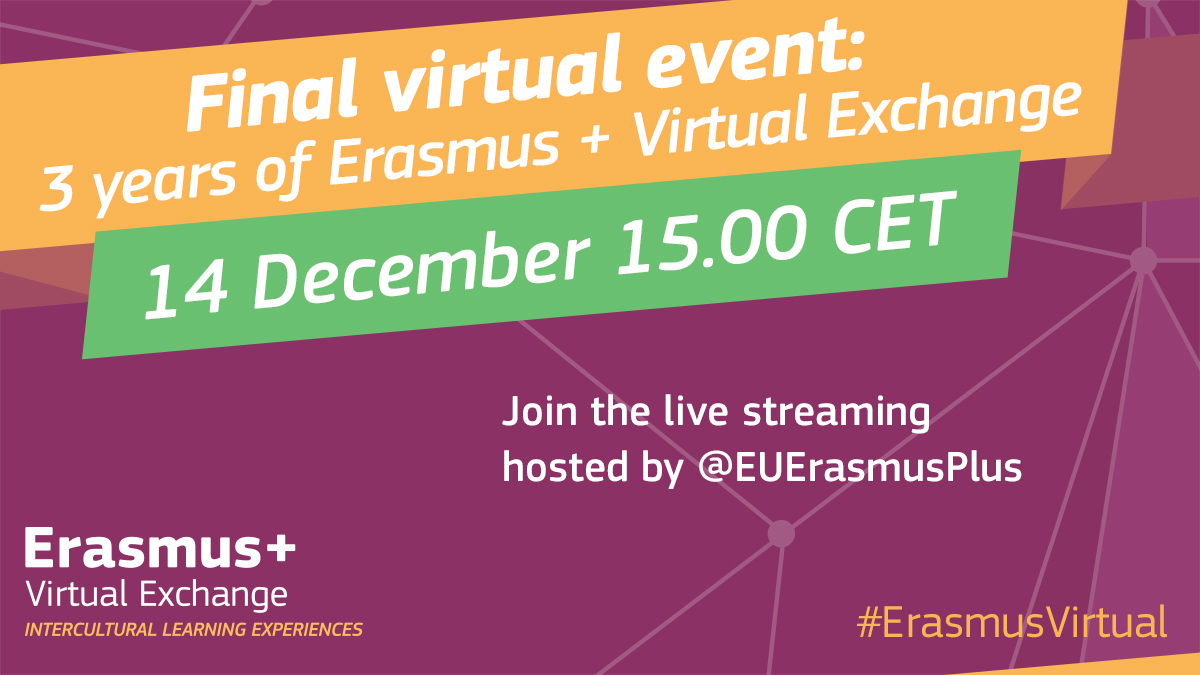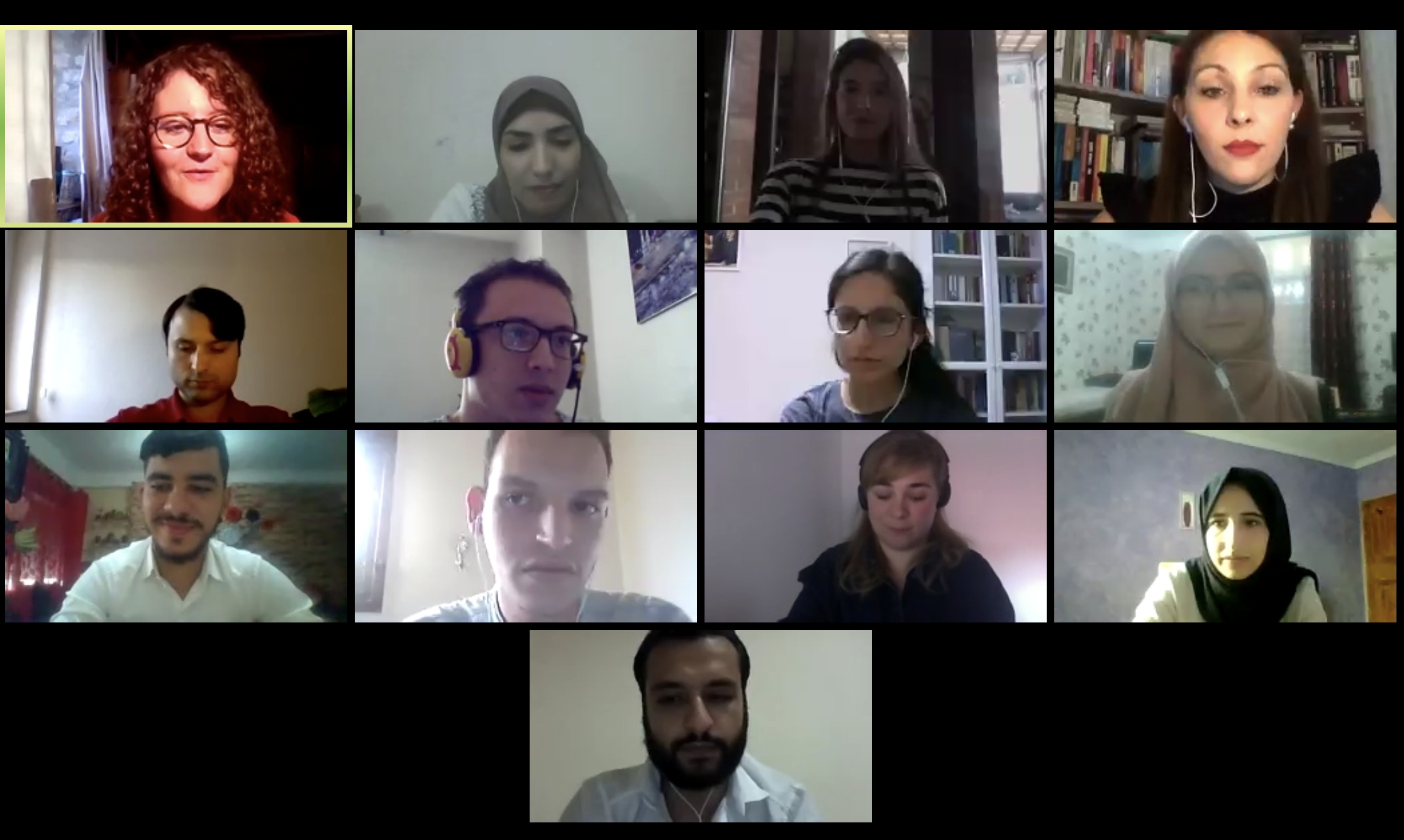Letter to the Erasmus+ Virtual Exchange Community

Dear Erasmus+ Virtual Exchange Community,
The Erasmus+ Virtual Exchange initiative was launched in 2018, with the aim to offer young people the opportunity to engage in an intercultural learning experience online. Three years later our activities are coming to an end but the fascinating stories and experiences we have lived together, will stay forever!
Impact recap
We are delighted to announce that during this time, our initiative reached over 30.000 participants who have taken part in a variety of activities under Virtual Exchange.
The impact on young people, following their Virtual Exchange experiences has been overwhelmingly positive, with reports showing they have become more curious about each other and more empathic.
Participant’s confidence has been boosted, their language and digital skills have improved and their intercultural competencies widened.
"Students were able to join interactive activities, intercultural dialogue, experience internationalisation at home and acquire essential skills".
Dr. Naouel Abdellatif, Vice-Rector at Setif 2 University, Algeria.
"Discussions were led by us (the participants) and this made the exchange a personal and interesting experience, very different from University."
Angelina Prins, Erasmus+ Virtual Exchange participant from Holland.
Coming up soon…
A report on the impact of Erasmus+ Virtual Exchange will be released in early 2021. All highlights will be published on our website and social networks, stay tuned! We look forward to seeing you joining new Virtual Exchange adventures in the upcoming phase of Erasmus+ programme for 2021-2027.
Erasmus+ Virtual Exchange stories
This flagship project was established under a contract with the Education, Audiovisual and Culture Executive Agency, financed by the European Union’s budget, and it was implemented by a consortium composed of Search for Common Ground, Anna Lindh Foundation, UNIMED, Sharing Perspectives Foundation, Soliya, UNICollaboration, Kiron Open Higher Education, and Migration Matters.

